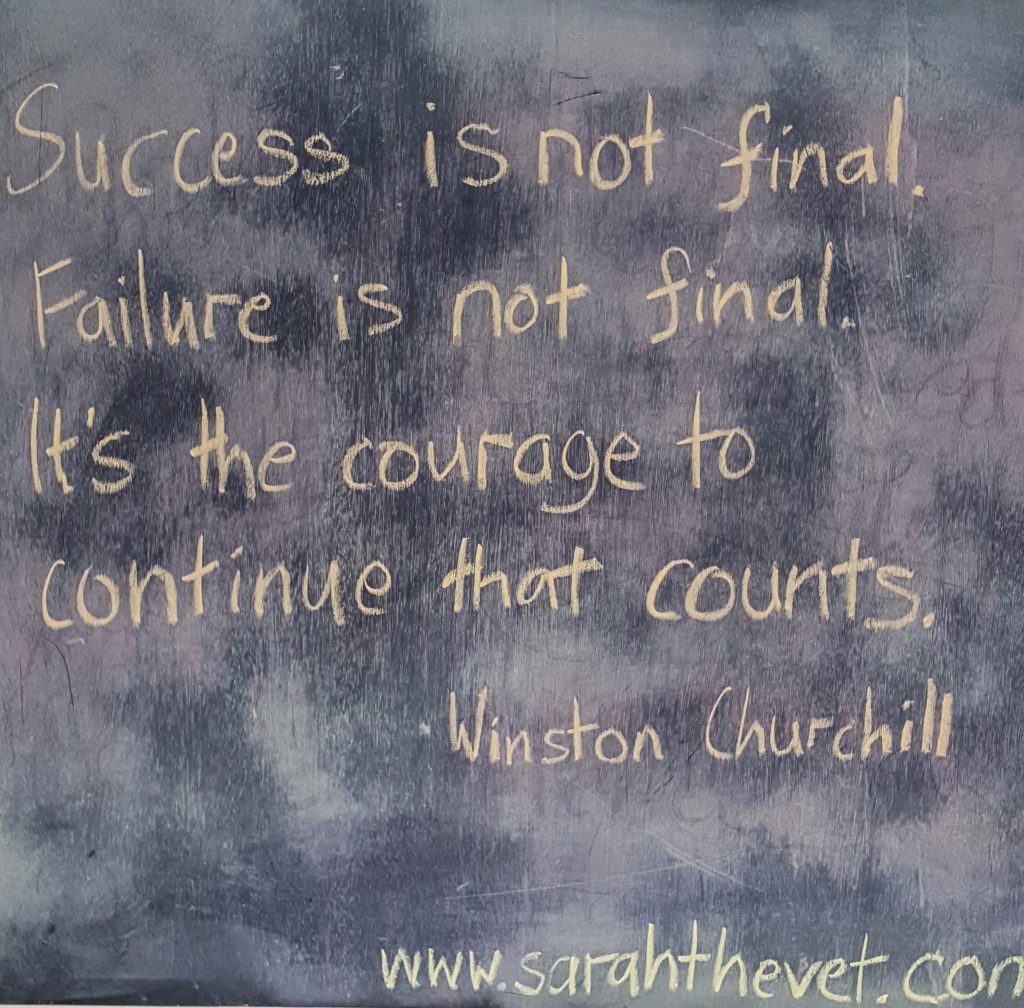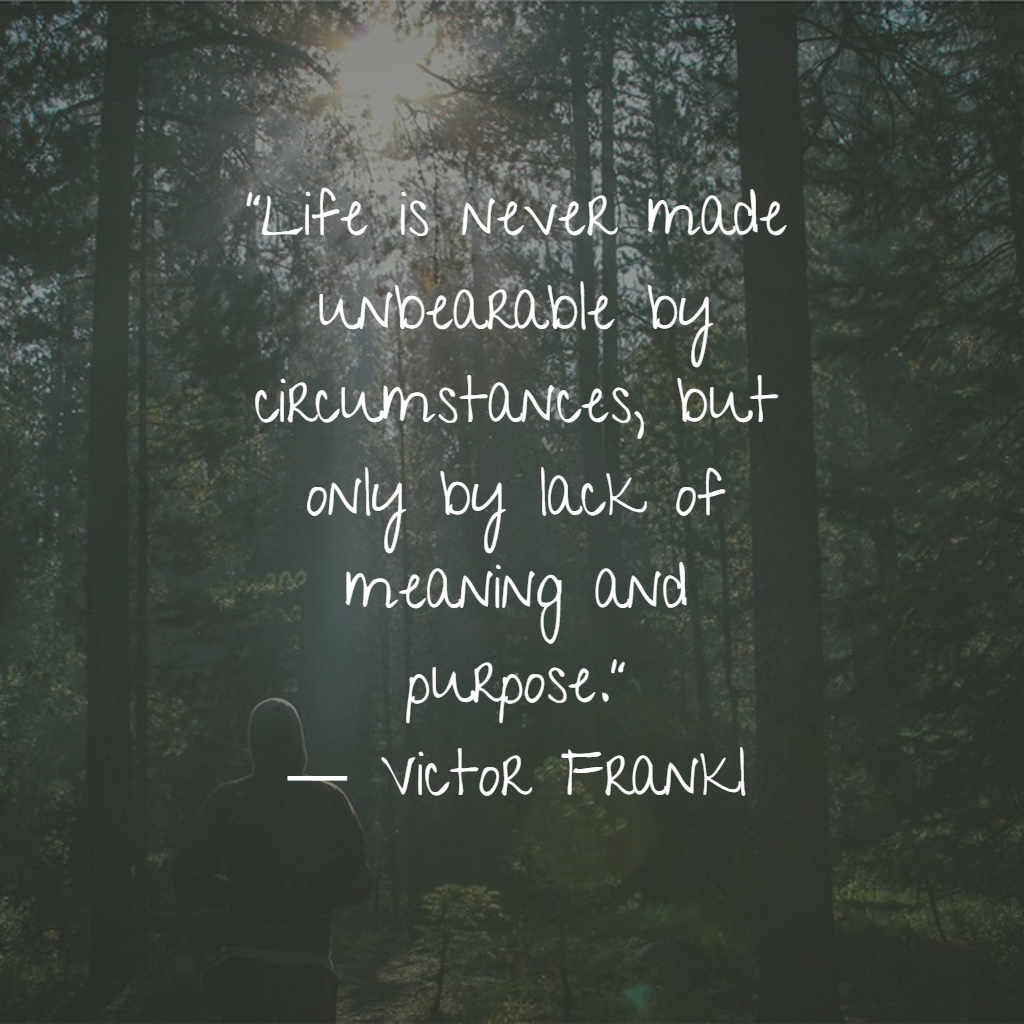I had hoped I’d never need to share my experiences and lessons about redundancy with the vet profession, but it’s now clear that this has become other people’s reality recently too. Let me share my story and what I learnt about my personal process in the hope that it can help some of you going through it now. I’m not going to give legal advice as there are many others more qualified to do this and I will pop their links at the bottom of this article. The most important thing to know is that you must talk and don’t bottle up your feelings – please call an organisation like VetLife if you need to speak/email someone and don’t wait to the stage of it being too overwhelming.

A little over a year ago I was made redundant. It suddenly felt very heavy, overwhelming and painful. There was no getting over the fact that initially it felt very personal and raw and my first reactions were of anger and hate which lead to dark thoughts and a major knock in confidence. For me, the job had been spiralling downwards for some time and my hopes and dreams of moving half way across the country to what should have been a dream job and wonderful location were dissolving before my eyes and so the redundancy itself was a surprise but not unexpected. It was only after a year, after much talking with others and a journey of self-discovery, have I been able to put this episode into perspective and realise that it is not because of me that I made redundant, it wasn’t my fault and I shouldn’t have denied my feelings about job disappointments for so long. It didn’t help that I then felt I should over-compensate when finding the next job and do all I could to make sure it fitted what I was expecting as much as possible. When no-one met my too high goals I panicked and took a job that was blatantly not right – my mistake.
Firstly, please try to accept your feelings over redundancy, explore them and talk about it. Strong emotions and the reactions to these are normal in these circumstances. Don’t bottle it up like I did – it will only make you bitter and overwhelmed. You need to admit that this is a hard time and it is painful – it is almost like a form of grief you need to move through waves of differing emotions to finally achieve acceptance. Do you have some good friends who you can off-load on? Family and intimate partners are too close for this and won’t give you an unbiased view due to the nature of their love for you. Try to find someone who will listen, will be empathetic but will also set you straight when you start to wallow in self-pity and resentment. If you don’t have a friendship network that allows this then VetLife or a similar organisation is there for you. Whatever you do, don’t rant on social media. Not only do people in internet land not help you to find the truth as due to conformational bias you seek out people with the same view point ending up with things like ‘all corporates are evil’, it is an emotional amplifier so the group ends up moaning about the same stuff and will colour your view of everything that happens, and you may end up saying things that are unprofessional and hurtful to others. Those around you or your soon to be ex-employers may not show emotional intelligence but you can learn to practice it. Always assume that your next employer will be reading what you said about your last employer if you’re talking about them on social media.

Next, try to understand that redundancy is not personal and you shouldn’t be ashamed that it has happened. In fact, most times someone is dismissed it is not that they are a bad person, it is just they are a bad fit for that company or team. Despite what it may sometimes seem, managers aren’t out to personally make your life hell and this is something that happens to you not because of you. This is a difficult mindset to achieve. I found it helpful to constantly reaffirm that I had control of my reaction to circumstances but it is rare that I could control the circumstances themselves, but for many months I was carrying the bruises of the failed job with me to each interview and therefore I didn’t show the best version of myself. Redundancy is not a reflection of you or your work and so please don’t doubt yourself and lose confidence. You may choose to fight the redundancy but make sure you are doing it for the right reasons for yourself and not out of a stance of anger. You may want to consider negotiating with your employers by offering to take a salary cut or work fewer hours. Consider that if your redundancy is reversed, will you be happy going back to work for that company even if it is another location or position?
You are not alone; sadly, people in all industries are made redundant all the time. The veterinary profession was in a rather unique position of being protected from redundancies, mergers and job cuts being rare and there not being enough vets for positions meant there were plenty of vacancies for the number of vets looking for jobs. But with the growth of large companies owning vet practices and now the current turmoil of the COVID pandemic, we are now no longer immune from the rest of the economy. We are entering world-wide recession that is bigger than the financial crash of 2008, companies need to consolidate and cut costs and even close sites for their survival. How companies handle themselves during the pandemic and after will be indicative of their ‘why’, their inner culture and purpose, and you need to assess how your personal beliefs and values sit with your employers or ex-employers. If they say it is something vague like ‘to fix animals’, or past behaviours show they care more for their bottom line than their teams (tip – don’t put ‘profit’ as one of the values you tell your employees), then the company doesn’t know what it stands for, or it stands for something that is very unlikely to be what it employees think they are working for.

Use this time to re-assess what it truly important for you. If during lockdown your life changed, was this for the better or the worse? For me as a locum vet with all work cancelled for the foreseeable future, my life changed beyond what I could ever imagine and now looking back I can see what I need to address long-term. For example, I was spending too much time on vet related things and not enough on my creativity and that although I’m an introvert and staying at home initially felt good, I really missed working with a small close-knit team and making connections became very important. This is a good point in your life and career to re-assess your goals and see if where you are heading has changed since your last job change. Perhaps your old job, career or work-life balance was leaving you exhausted, stressed and burnt-out; this could be a good time to address these and have a chance to start on a new journey. It is also fine to admit you just need a job to pay the bills and you get your life’s satisfaction elsewhere such as parenting; just be honest with yourself as to this cause. When swamped with emotion, it can be hard to see the light at the end of the tunnel and to see what you can and want to change in your life. A personal development or careers coach is a good person to help you through this and there are now several working in the veterinary profession.

It may be difficult to see this at the early stages of redundancy when the emotions are very raw and angry, but this could turn out to be a good thing for your career. Just like how the COVID pandemic has forced us to change in many ways, use this as a catalyst and motivation to move forward in your career or to change direction. If you are feeling lost as to what other career moves you could consider, I highly recommend you sign up to the VSGD Global Careers Summit – you have missed it live but all the sessions are recorded and available for the next year. We don’t need to have just one career in our lives – in fact it is quite normal to try several things and to reinvent yourself. Find new opportunities for job seeking, perhaps considering reverse recruitment, hunting for the right practice or job, approaching practices directly and networking with your contacts.
Control. Part of my personality means I need to analyse situations and control as much as I could and these traits are common in vets, though not universal. During the pandemic things are even more uncertain and unpredictable in all areas of life. For me, taking back control meant researching what options I had regarding redundancy and future work and taking stock of finances and discussing with my husband to check that I could safely set aside time for job searching while still being able to pay bills. You may also find that making a financial plan is a good step and also acknowledging that you can’t control many things. Before you get carried away with considering what you will spend a lump sum redundancy package on, know that these are very rare because, as of yet, we don’t have a strong unified union voice to fight our corner for this. For example, notice pay is one weeks pay for every year you’ve been employed up to two years.
Protect your energy. Full time job seeking is very time consuming, emotionally draining and you can quickly end up disheartened when things don’t proceed as you feel they should. Don’t let all your time and energy be taken up with your goal of finding another job. I found I was more even minded and receptive to different possibilities if I hadn’t spent every hour looking for jobs, thinking about jobs, talking about jobs. Having a positive mindset improves communication skills, boosts your confidence (which is picked up by those you communicate with) and means you present the best version of yourself to the world. It also means you are less likely to make mistakes in how you present yourself like sending the wrong letter to the wrong company. Make sure you keep exercising, eating well and don’t turn to alcohol every day to numb the hurt feelings.
Dealing with redundancy with the right mindset and dealing with it in the right way means you’ll be just fine. I know you will.

Resources
VetLife – you can phone or email anonymously and they would rather speak to you sooner rather than later.
GOV.UK on Redundancies, dismissals and disciplinaries including calculators for redundancy pay, the procedures and your rights.
The British Veterinary Union – a good source of information and help
Unites advice for legal right for a safe place to work
Reading recommendation – ‘Man’s search for meaning’ by Viktor Frankl. A prominent Viennese psychiatrist before the war, Viktor Frankl was uniquely able to observe the way that both he and others in Auschwitz coped (or didn’t) with the experience. He noticed that it was the men who comforted others and who gave away their last piece of bread who survived the longest – and who offered proof that everything can be taken away from us except the ability to choose our attitude in any given set of circumstances. The sort of person the concentration camp prisoner became was the result of an inner decision and not of camp influences alone. Frankl came to believe man’s deepest desire is to search for meaning and purpose. This outstanding work offers us all a way to transcend suffering and find significance in the art of living.


10 July 2020 at 4:00 pm
That is a very well written balanced article Sarah that is relevant to so many professional people in a wide range of industries. I have no doubt you will find the perfect opportunity and be a great sucess no matter with such a positive attitude.
10 July 2020 at 4:43 pm
Thank you Mary. Luckily I am an optimist (most of the time) so I know the right role/practice/path is out there – it is up to me to figure it out and find it.
10 July 2020 at 4:40 pm
What an amazing post. I hope you are doing well band keeping safe. Been there.Such a lot of useful resources too.
10 July 2020 at 4:45 pm
Thank you Michele.Knowledge and a shared personal experience can ease a lot of fear. There is comfort in knowing that someone has survived and, better yet, thrived after this situation.
11 July 2020 at 11:50 am
Hi S
A good, edifying read. I share the emphasis upon the word “ACCEPT” with you – for by accepting something you can neither change nor influence, your energies can be applied effectively to something that I within your power.
More acceptance (if appropriate) = less useless ranting!! (= healthier you.)
George Cooper
12 July 2020 at 8:14 am
Sarah,
thank you for a well balanced, thoughtful and heartfelt article. I have been through two similar unwanted job losses for health reasons; in each case, after the heart ache, the forced reevaluation of what my identity as a vet and human being really means has led me, as I think you are doing, toward a more balanced, creative and ultimately joyful life by design, rather than stumbling on blindly for yet more years.
Thank you for a thought provoking piece. I truly hope that you continue to move forwards with the life you design and enjoy.
Yours
Lisa Shaul (vet & coach)
24 October 2020 at 11:39 am
Hi Sarah. Great article and fascinating read. The parallel with a personal situation all of 40y ago hit me. Of course employment law and ways of handling such things have changed massively in the interim. Back in 1981 I was in my 2nd job. It wasn’t going brilliantly though I was acquiring a great deal of very useful experience. Grumpy words were headed in my direction quite regularly and I began to feel insecure after a few months. Then it improved somewhat. Then unexpectedly, one morning, I found myself going home within half an hour of arriving at work…. never to return. Not redundancy. No process. Summarily sacked…essentially because I just didn’t fit in.
There’s a long story that followed, but I won’t bore you with it. The brief lessons for me were several:
1. If this had happened more recently, due process would have dragged it out over a long period. Would that have been better for me? Absolutely not. It would have been a far more negative experience than the one I experienced. And I would have hated it. Conclusion: if you can see something bad coming, cut it short and leave. Take control for yourself and move on. Who wants to be where they are not wanted? Life’s too short.
2. I was newly married. Wife saw it coming more than me! Day 1 we had a cuppa and dived into job ads. 3 interviews lined up within hours. Was this too quick? Knee jerk reaction? I’ve never thought so. For me I don’t like to over think, I prefer activity… but that’s very personal and individual. However my 3 interviews were diverse. One in a very different type of practice, and 2 in industry. Rest of the week we chilled. Week 2: interviews. First was in the practice. Offered job. Hesitated. Took it. Cancelled the other interviews. ERROR! My mistake was not in taking the practice job. It turned out really well. But I should have gone to the 2 industry interviews anyway. I never did work in industry and I have always wondered how I would have enjoyed it. So the lesson is to go to as many interviews as possible. Even when you wouldn’t want the job. Be nosey! Go see.
Weeks 3/4: went to Greece!
Week 5 started new job.
Being forced to leave a job moved my life on. It wasn’t a negative. Sure there was some emotion but it was peracute and gone in a few days. Such situations create opportunity and sometimes humans work better when opportunity is thrown at you rather than long pre planned.
Conclusion: every cloud has a silver lining. Go find it.
2 November 2020 at 10:26 am
Love the quotes and thank you for sharing your insight here. Although I haven’t experienced redundancy first hand, I have worked with a difficult manager and things weren’t going well. It takes the spring out of your step. Some might say falling pregnant and leaving was a tad extreme!
Two people close to me have been made redundant however – it knocks back even the most self-assured people. I see it as a Change Agent, when power is once again returned to us to choose our destiny.